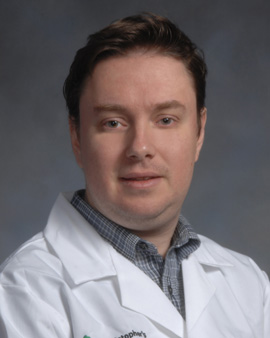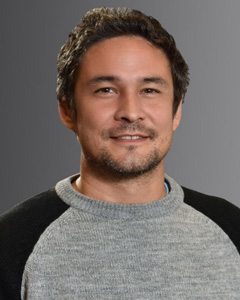Ongoing Projects and Research

Dr. Ehrlich is the founder and executive director of the Center for Genomic Sciences (CGS), now at its third host institution. Originally founded by Dr. Ehrlich and colleagues in 1995 at the University of Pittsburgh, the CGS has been widely recognized since its inception for the leadership role it has played in the development, validation, and implementation of novel genomic and bioinformatic technologies, as well as for its serving as the genesis cradle for multiple theoretical advancements including the concept of the bacterial supragenome, the distributed genome hypothesis, and the application of statistical genetics to identify candidate pathogen virulence genes.
Over the past twenty-plus years Dr. Ehrlich has spear-headed the Center for Genomic Sciences' development of computational approaches to laboratory automation and data analysis. He has also overseen the Center for Genomic Sciences' adoption of multiple nascent high throughput laboratory technologies including: automated robotic clone sequencing; automated array construction and reformatting across multiple platforms; beta testing of the original Illumina bead station; serving as both alpha and beta testers of 454 Lifesciences original next generation DNA sequencing platform; and more recently serving as beta testers for the Pacific Biosciences (PacBio) third-generation long-read sequencing technology.
Dr. Ehrlich also envisioned the high fidelity species-specific, PacBio-based microbiome analysis pipeline for which the Center is currently known. His current research interests lie in two principal areas. The first is comparative bacterial genomics within species, and the development and use of bioinformatic tools to identify candidate virulence genes from among the microbial genomic "dark matter" (unannotated and under annotated genes); and the second is identifying human alleles associated with the susceptibility to infections or poor outcomes following infection. It is this intersection of host and pathogen genetics that he describes as the "War of the Genomes" that he intends to explore going forward.

Dr. Philip Giampietro is a board-certified clinical geneticist with interests in dysmorphology and birth defects. He has research interests in the genetics of congenital and idiopathic scoliosis. He has worked closely with orthopedic surgical colleagues, clinical and molecular geneticists and epidemiologists to better understand genetic and environmental contributions to these conditions.
Currently Dr. Giampietro utilizes whole exome and whole genome sequence analysis to identify candidate genes for congenital scoliosis. Identified sequence variants are currently being tested using animal models (mice, zebrafish) for pathogenicity. His research has been funded by the Scoliosis Research Society and the Orthopedic Research Foundation. Dr. Giampietro also has interests in connective tissue disorders, personalized medicine and syndrome delineation.
View Dr. Giampietro's publications in PubMed.

Dr. Ioannis Koutroulis has a special interest in pediatric sepsis. His current work focuses on the interaction between metabolic pathways and innate immunity during the septic process that can lead to organ dysfunction. His goal is to identify potential therapeutic targets that will alter those immunometabolic interactions and alleviate both the "energy starvation" and hyper-inflammatory state during sepsis in the pediatric population. In the past he has published numerous studies in atopic dermatitis and other clinical topics.

Dr. Joshua Chang Mell uses genomics and molecular genetics to investigate how bacterial genomes evolve, especially in the context of chronic infection by human pathogens. He is particularly interested in understanding the role of recombination in shaping bacterial genomes and how gene transfer among related lineages can accelerate the rate that bacteria adapt to our immune systems and therapeutic interventions. He applies a combination of comparative and experimental approaches to predicting the genomic consequences of recombination and identifying novel virulence factors. Dr. Mell also collaborates on a variety of functional genomics projects at Drexel, particularly as they relate to host-microbe interplay at the genetic level.
Back to Top